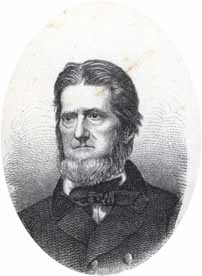Sinners Were Converted and Saints Were Edified Under His Ministry
Like his brother Samuel, John Blair was also born in Ireland. Coming to the American colonies, he was ordained in 1742 as the pastor of two Presbyterian churches filled with Scot-Irish Presbyterians in Cumberland County, Pennsylvania. During his ministry here, he made two evangelistic tours to Virginia where he preached with great power. Presbyterian congregations were organized as a result.
In 1748, despite organized armed resistance against marauding Indians, he was forced for the safety of his family to depart back to the eastern section of Pennsylvania. While there, he received a call as the second pastor of Faggs Manor Presbyterian Church in Cochranville, Pennsylvania, where his brother Samuel had both ministered and organized a classical Christian school.
When John Witherspoon hesitated to take the president’s office of the College of New Jersey, John Blair was appointed a Professor of Divinity and Moral Philosophy in 1767. Indeed, as the Office of the President continued to be vacant, he stepped in as President of the college. But upon Witherspoon’s agreement to come to America and take the leadership of the College of New Jersey, Blair graciously stepped down. Moving to New York, he died on December 8, 1771.
It was said of John Blair that as a result of his zealousness in the gospel, sinners were converted and the family of God edified. What more of a testimony could a Christian and a Christian minister desire than this?
Words to live by:
It is frequently the case when you have a theologian, there is a lack of experiential witness to the world at large. His ministry is in his study or in the classroom, not out on the highways and byways of life. Or, by contrast, you might have an individual who is absolutely powerful in persuasion of the hearts and minds of those outside of Christ, but who would never get into the deep things of theology. John Blair had both abilities in his life and ministry. As a theologian, he was not inferior to any of his day. As a pastor, he addressed souls with that warmth and power which left a witness to the truth of the gospel. Each Christian is to seek his or her calling so as to be a witness in whatever place the Holy Spirit sends them. And if it is to the intellectual as well as to common people, so much the more is God glorified.

